
By: Robert St. Martin
Los Angeles, CA (The Hollywood Times) – The opening-night crown at the 19th Annual SEEfest Film Festival on Wednesday night at the Writers Guild Theatre in Beverly Hills was treated to the Cold War thriller, Guardians of the Formula (2023), a knotty true story that takes place in 1958 Yugoslavia.
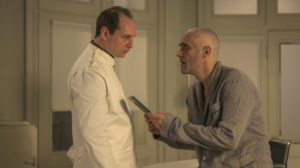
In the struggle between the West and the Communist Bloc, scientist Dragoslav Popović (played by Serbian actor Radivoje ‘Rasa’ Bukvić) is attempting to activate the first nuclear reactor at the Vinca Scientific Institute near Belgrade. An unforeseen accident at the 1950s Belgrade reactor causes a leak that exposes the professor and some of his students to a lethal dose of radiation – after which they are taken by Yugoslav secret police to the Curie clinic in Paris, France, for treatment.
The fission and fusion of human relationships form the unstable core of Serbian director/co-writer Dragan Bjelogrlic’s conventional but engaging medical procedural film, set in the France and Yugoslavia of 1958. The film dramatizes the work of Paris professor
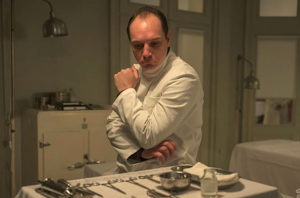
Georges Mathé (played by French actor Alexis Manenti) with his innovative experimental treatments on four nuclear researchers irradiated by a Belgrade reactor-leak and his use of the first human bone marrow transplants to save these patients.
Guardians of the Formula – which carries the subtitle of Chain Reaction – is a Serbia-Slovenia-Montenegro-North Macedonia co-production which premiered at the recent Locarno Film Festival where it won the Variety Piazza Grande Award.
As the opening night film at the 2024 SEEfest Film Festival in Los Angeles, Guardians of the Formula will be followed by a large series of new films from South East Europe through May 8. See the SEEfest website for more information about all the screenings at various venues: https://seefest2024.eventive.org/
Mathé worked with mice and, through trial and error, helped create bone marrow transplants which would ultimately serve to save many lives. In its early stages, this film takes audiences back in time a bit with an examination of Popović’s dilemmas regarding the events which transpired before the opening scenes of the picture take place.
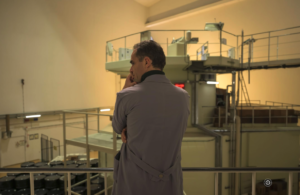
The scientists at the in Vinča Nuclear Institute in Belgrade, Yugoslavia, implemented a secret project led by physicist Popović using local Serbian uranium in a nuclear reactor that was part of a top secret project to create an atomic bomb for Yugoslavia. The audience gets a glimpse of Popović’s mounting pressures and a very intensive look at his research team. Though the characters of Mathé and Popović may seem different from one another in terms of their viewpoints, a bond is formed between them in the course of the movie.
Mathé, an oncologist and immunologist, and a fiery adversary to nuclear weapons, feels a genuine contempt for the work endeavors of Popović and his team. On the other hand, the scientific team from Yugoslavia doubt Mathé’s true intentions to cure them. As they are left with only days to live, the medical team still has no solution. So, Mathé proposes to perform the first-ever human bone marrow transplant. Is it an experiment with human lives or does he truly want to help?
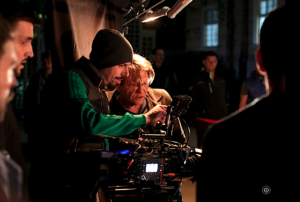
With a renewed interest in the research on the atomic bomb with the commercial success of Oppenheimer, Bjelogrlić’s Guardians of the Formula offers a far more classical, but no less gripping take on a little-known episode marking a historical intersection between the medical and nuclear sciences.
Based on Goran Milašinović’s book Vinča Case, there are further echoes of Christopher Nolan’s epic in how this elegantly constructed movie centers the ethical and ideological dilemmas of brilliant men of sci ence thrust, somewhat reluctantly, onto the international political stage. But it differs in its careful inclusion of the heroism of ordinary people, and in showing how, while genius is valuable, it’s only prolonged exposure to more everyday human decency that can irradiate the more bull-headed scientific ego with the compassion needed for actual wisdom.
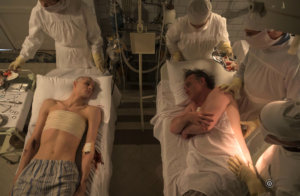 In a clever flourish from screenwriters Vuk Ršumović, Ognjen Sviličić and Bjelogrlić, Mathé’s single-minded, ethically questionable pursuit of scientific breakthrough is mirrored with that of Popović. Extended flashbacks take us through the weeks leading up to the accident at the Vinca Institute near Belgrade, cluing us into the physicist’s volcanic character, the pressures on him to deliver on orders handed straight down from autocratic Yugoslavian president Tito, and his relationship with his barely-graduated research team, who regard him as a kind of scientific god.
In a clever flourish from screenwriters Vuk Ršumović, Ognjen Sviličić and Bjelogrlić, Mathé’s single-minded, ethically questionable pursuit of scientific breakthrough is mirrored with that of Popović. Extended flashbacks take us through the weeks leading up to the accident at the Vinca Institute near Belgrade, cluing us into the physicist’s volcanic character, the pressures on him to deliver on orders handed straight down from autocratic Yugoslavian president Tito, and his relationship with his barely-graduated research team, who regard him as a kind of scientific god.
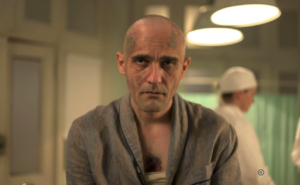
Meanwhile in France, the exuberance of the young Yugoslavian patients (appealinglyplayed by Ognjen Mićović, Jovan Jovanović and Alisa Radaković) wins over the local nurses and hospital workers, not to mention the locals who turn up in droves in to donate blood. Gradually, the atmosphere of disdain and mutual hostility between Popović and Mathé gives way to a prickly, never overly sentimentalized respect, which is perhaps simply each recognizing in the other similar ambition, similar brilliance and similar, potentially fatal, flaws.